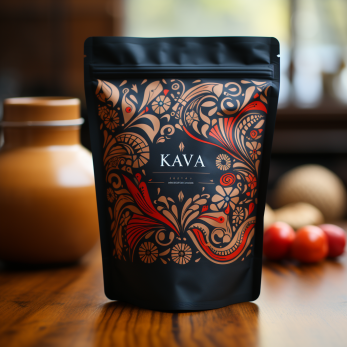
Stress management is an essential part of our lives, affecting everything from mental well-being to physical health. In the pursuit of calm and relaxation, many turn to natural supplements. One such supplement, gaining traction for its supposed anti-stress properties, is Kava. However, not all that glitters is gold, and Kava comes with its own set of risks and side-effects, some of which are quite severe.
What is Kava?
Kava is a plant native to the Pacific Islands, and its roots have been used traditionally in various ceremonies and as a social drink. The active compounds in Kava are known as kavalactones, which are believed to have calming effects, reduce anxiety, and promote relaxation.
However, while these effects might seem attractive, there's more to the story. Here's what you need to know about the potential risks of Kava.
Risk of Liver Failure
One of the most alarming concerns about Kava is its association with liver toxicity. There have been reports of severe liver damage, liver failure, and even death due to Kava consumption. The risk is higher when consumed in large quantities or in conjunction with alcohol or other medications that might affect the liver.
Impact on Mental Health
While Kava might be sought after for its calming effects, prolonged use may lead to problems like depression and other mental health issues. These effects can be subtle at first but may develop into more serious problems over time.
Skin Problems
Chronic consumption of Kava may lead to a scaly rash known as "kava dermopathy." Though not dangerous, it can be a sign of overconsumption and could be aesthetically displeasing.
Interaction with Other Medications
Kava can interact with various medications, including those for Parkinson’s disease, depression, and anxiety. These interactions may either reduce the effectiveness of medications or enhance their side effects.
Addiction and Withdrawal
Though rare, some cases of Kava addiction have been reported. Withdrawal symptoms may include tremors, heart palpitations, and shortness of breath.
Guidelines for Safe Consumption
If you're considering using Kava as a stress-relief supplement, it's essential to approach it with caution.
- Consult a Healthcare Provider: Talk to your doctor or a healthcare professional about your intentions to use Kava, especially if you have existing health conditions or are on other medications.
- Follow Recommended Dosages: Stick to the recommended dosages and avoid long-term use. Overconsumption increases the risks associated with Kava.
- Avoid Alcohol: Mixing Kava with alcohol increases the strain on your liver and can lead to more severe health issues.
- Monitor Your Health: Keep track of any changes in your mental or physical health while using Kava.
Conclusion
Managing stress is crucial, but it should never come at the cost of your overall well-being. While natural supplements like Kava might seem like an appealing solution, they are not without risks. Make informed decisions and consult with healthcare professionals to ensure that your path to relaxation does not lead to unexpected and potentially devastating health challenges.
Disclaimer: The information contained in this article is for educational purposes only and should not be used as a substitute for professional medical advice, diagnosis, or treatment. Always consult your healthcare provider with any questions or concerns you may have regarding your health.
